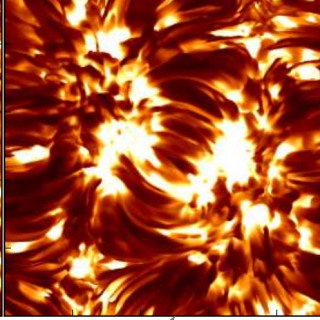Bibcode
Socas-Navarro, H.
Referencia bibliográfica
Astronomische Nachrichten, Vol.331, Issue 6, p.581
Fecha de publicación:
6
2010
Número de citas
3
Número de citas referidas
2
Descripción
This paper discusses some of the challenges of spectro-polarimetric
observations with a large aperture solar telescope such as the ATST or
the EST. The observer needs to reach a compromise between spatial and
spectral resolution, time cadence, and signal-to-noise ratio, as only
three of those four parameters can be pushed to the limit. Tunable
filters and grating spectrographs provide a natural compromise as the
former are more suitable for high-spatial resolution observations while
the latter are a better choice when one needs to work with many
wavelengths at full spectral resolution. Given the requirements for the
new science targeted by these facilities, it is important that 1)
tunable filters have some multi-wavelength capability; and 2) grating
spectrographs have some 2D field of view.
Proyectos relacionados

Magnetismo, Polarización y Transferencia Radiativa en Astrofísica
Los campos magnéticos están presentes en todos los plasmas astrofísicos y controlan la mayor parte de la variabilidad que se observa en el Universo a escalas temporales intermedias. Se encuentran en estrellas, a lo largo de todo el diagrama de Hertzsprung-Russell, en galaxias, e incluso quizás en el medio intergaláctico. La polarización de la luz
Ernest
Alsina Ballester